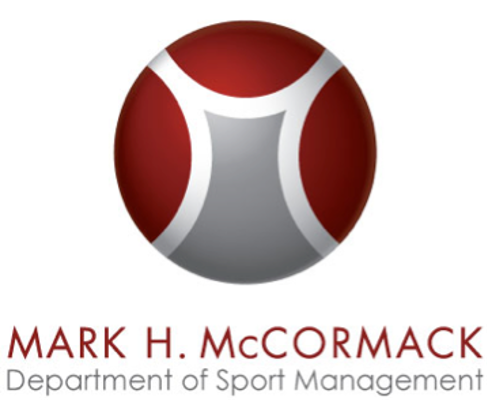Paying it Back: The McCormack Octagon Bowl
As current or former students, we all have classes we look back on with fond memories: the class that eloquently combined classroom and experiential learning; the class that challenged us to think outside the box; the class that ignited our competitive spirit; the class that makes us proud to call ourselves alums. For graduate students enrolled in the Masters program in the McCormack Department of Sport Management at the University of Massachusetts Amherst (UMass), one such class is Sport Marketing and the Octagon Bowl.
Each fall semester for the past decade, the graduate Sport Marketing class at UMass has partnered with the global sports and entertainment agency Octagon for what has been termed the Octagon Bowl. Students in the class work in groups on a semester long project with Octagon to create an integrated marketing campaign for a real-world Octagon client. Following the Octagon Bowl, Octagon incorporates ideas from the student groups into the actual campaign, illustrating the value Octagon places on the work of the students.
This year’s project is with Mastercard, in conjunction with the company’s sponsorship of the British Open, and will conclude with the 2016 Octagon Bowl on December 16. During the Octagon Bowl, students present their proposed campaigns to a panel of judges comprised of representatives from Octagon and Mastercard, who question each group of presenters and then vote on a winner. The presentations test the knowledge, preparedness, and professionalism of the students. As Dr. Matt Katz, the instructor of the course, commented, “The judges are tough. They come to campus and expect professional presentations with professional insight. Their questions are challenging, and their expectations are high. We have mock presentations, ‘dress rehearsals’ of sorts where we record a practice presentation and force the students to evaluate themselves, and we try and simulate the types of questions the judges will ask. It makes for a great learning experience because our students know the level of excellence expected from them – and they prepare accordingly.”
This year’s panel of judges is relatively unique, as it includes Michael Goldstein and Noah Kolodny, both graduates of the UMass MBA/MS Sport Management program. Goldstein graduated from the program in 2007 and is now Vice President of Global Sponsorships at Mastercard. Kolodny graduated from the program in 2006 and is now Vice President at Octagon Marketing. In addition to their participation in the Octagon Bowl as professionals, both Goldstein and Kolodny participated in the Octagon Bowl as UMass graduate students.
“The Octagon-UMass relationship has been a win-win partnership,” Kolodny commented in reflecting on the Octagon Bowl. “Octagon has provided the UMass students an opportunity to gain real world experience in developing 360-degree marketing programs for leading corporate sponsors including Mastercard. Throughout our decade-long partnership, students have been given the opportunity to demonstrate research abilities, creative thinking, and written communication and presentation skills. Our agency has been able to leverage the students’ strategic thinking to enhance our clients’ initiatives and generate innovative solutions.”
2015 Octagon Bowl winners with representatives from Octagon and UMass
Providing students with experiential learning opportunities prepares them to enter into the sport industry as professionals, but the case of the McCormack Octagon Bowl shows us how such learning opportunities do more than just that. As Kolodny noted, “The benefits [of the partnership] are not limited to specific projects. The partnership has helped Octagon and our clients to identify and foster the next generation of marketers and strategists.”
The Octagon Bowl illustrates how experiential learning can allow students to realize the value of their educational experiences, such that as they progress upward in their professional careers, they remain connected to their alma mater, allowing alumni networks to thrive. These networks are not only advantageous in the industry, but also back “home” at the university as well. These networks motivate our former students to periodically turn to their alma mater and pay it back.


